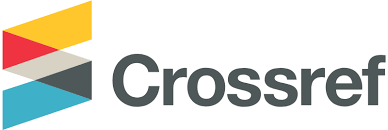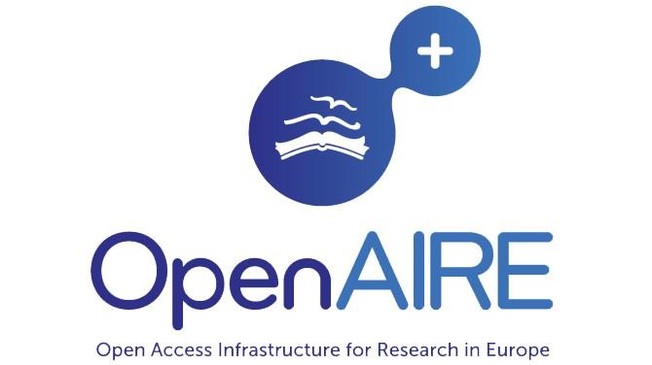DESAIN BAHAN AJAR HUKUM NEWTON BERBASIS WIX WEBSITE UNTUK MELATIH KETERAMPILAN ARGUMENTASI SISWA SMA
DOI:
https://doi.org/10.21009/03.SNF2022.02.PF.15Abstract
Abstrak
Perkembangan ilmu pengetahuan yang begitu pesat, menuntut siswa harus dilatih agar memiliki keterampilan untuk hidup di abad 21 yang dikenal 4C, yaitu: critical thinking, communication, collaboration, creativity. Telah dilakukan penelitian tentang pengembangan bahan ajar berbasis website untuk melatih keterampilan argumentasi dengan menggunakan model ADI Tahapan model ADI pada bahan ajar berbasis website yaitu: (1)mengidentifikasi tugas, (2)pengumpulan dan analisis data, (3)produksi argument tentative, (4)sesi untuk argumentasi, (5)laporan investigasi, (6)double-blind peer review, (7)revisi laporan, dan (8)diskusi reflektif. Selain itu, indikator dalam keterampilan argumentasi diantaranya yaitu claim, ground, warrant dan backing. Penelitian ini bertujuan untuk mendesain bahan ajar model ADI. Hukum Newton berbasis wix website yang valid digunakan untuk melatih keterampilan argumentasi siswa di salah satu sekolah menengah di Bekasi. Bahan ajar didesain agar dapat digunakan sebagai alternatif bahan ajar yang mudah untuk diakses dalam rangka melatih keterampilan berargumentasi. Metode yang digunakan dalam penelitian ini adalah penelitian dan pengembangan (Research and Development) dengan model Dick and Carey. Hasil penelitian diperoleh informasi bahwa hasil divalidasi oleh ahli materi fisika, ahli media dan pembelajaran menyatakan media ini efektif digunakan delam pembelajaran dengan persentase 85% dengan kategori sangat efektif. Hasil validasi ini menyatakan bahwa bahan ajar berbasis website model ADI valid digunakan untuk melatih keterampilan argumentasi siswa.
Kata-kata kunci: bahan ajar website, keterampilan argumentasi, model Argument Driven Inquiry (ADI).
Abstract
The rapid development of science requires students to be trained to have the skills to live in the 21st century known as 4C, namely: critical thinking, communication, collaboration, creativity. Research has been carried out on the development of website-based teaching materials to train argumentation skills using the ADI model. The stages of the ADI model on website-based teaching materials are: (1) identifying tasks, (2) data collection and analysis, (3) production of tentative arguments, (4) arguments sessions, (5) investigative reports, (6) double-blind peer review, (7) report revision, and (8) reflective discussion. In addition, indicators in argumentation skills include a claim, ground, warrant, and backing. This study aims to design teaching materials for the ADI model of Newton law based on the valid wix website used to train students' argumentation skills in one of the secondary schools in Bekasi. Teaching materials are designed to be used as alternative teaching materials that are easy to access in order to practice argumentation skills. The method used in this research is research and development with the Dick and Carey model. The results of the study obtained information that the results were validated by material experts in physics, media, and learning experts in printing this media effectively used in learning with a percentage of 85% with a very effective category. The results of this validation state that the ADI website-based teaching material is valid to be used to train students' argumentation skills.
Keywords: Website Teaching Materials, Argumentation Skills, Argument Driven Inquiry (ADI) Model.
References
[2] J. Osborne, S. Erduran & S. Simon, “Enchaching The Quality of Argument in School Science,” Journal of Research in Science Teaching, vol. 41, no. 10, pp. 994-1020, 2004.
[3] W. Conklin & J. Manfro, “Higher Order thinking Skills to Develop 21st Century Learners,” Huntington: Shell Publishing. Inc, 2012.
[4] H. N. Dinni, “HOTS (High Order Thinking Skills) dan Kaitannya dengan Kemampuan Literasi Matematika,” Prosiding Seminar Nasional Matematika, p. 171, 2018.
[5] S. R. Ariyanto, “Problem Based Learning dan Argumentasi Sebagai Solusi dalam Meningkatkan Kemampuan Berpikir Kritis Siswa SMK,” Jurnal Kependidikan, vol. 6, no. 2, p. 197, 2020.
[6] S. S. Erduran, “Research trends on argumentation in science education: a journal content analysis from 1998-2014,” International Journal of STEM Education, vol. 2, no. 5, pp. 1-12, 2015.
[7] S. Nafingah et al., “Levels of Inquiry-Interactive Demonstration: Its Effect on Students’ Critical Thinking Ability in Online Learning with the Topic of Waves and Sounds,” Jurnal Penelitian & Pengembangan Pendidikan Fisika, vol. 6, no. 2, pp. 255-266, 2020.
[8] S. Erduran & P. J. Maria, “Argumentation in Science Education,” London: Spinger, 2008.
[9] C. Cahyati, P. Siahaan & S. Utari, “Implementation Of Argument-Driven Inquiry Learning To Train Students Experimental Skills,” International Conference on Education Science, vol. 5, pp. 210-213, 2017.
[10] M. Masrifah et al., “An Investigation of Physics Teachers’ Multiple Representation Ability on Newton’s Law Concept,” Jurnal Penelitian & Pengembangan Pendidikan Fisika, vol. 6, no. 1, pp. 105-112, 2020.
[11] O. S. Marhamah, “Penerapan Model Argument Driven Inquiry (ADI) Dalam Meningkatkan Kemampuan Argumentasi Siswa Pada Konsep Pencemaran Lingkungan di Kelas X SMA Negeri Ciawigebag,” Jurnal Pendidikan dan Biologi, vol. 9, no. 2, p. 41, 2017.
[12] W. Songsil et al., “Developing scientific argumentation strategies using revised argument-driven inquiry (rADI) in science classrooms in Thailand,” Asia Pacific Science Education, vol. 5, no. 7, pp. 1-22, 2019.
[13] A. Rinenggo & M. Murdiono, “Utilization of Schoology for the Development of PPKn Teaching Materials Based on E-Learning,” 2nd International Conference on Social Science and Character Educations, vol. 398, pp. 14-19, 2019.
[14] N. P. Yachina et al., “E-Teaching Materials as the Means to Improve Humanities Teaching Proficiency in the Context of Education Informatization,” International Journal of Environmental and Science Education, vol. 11, no. 4, pp. 433-442, 2016.
[15] P. P. S. Handayani & Feranie, “Feasibility of physics teaching materials oriented on cognitive ability and argumentation skill of student,” Journal of Physics: Conf. Series, pp.1-5, 2019.




